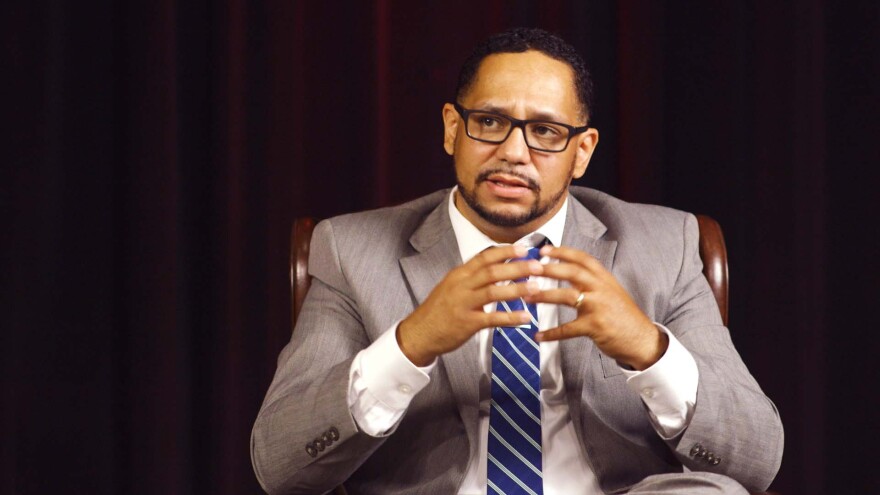“Family is very important. It's a legacy and preservation.”
From public defender to city commissioner, Bowling Green native Carlos Bailey's humble beginnings and family foundation led to a life of service and integrity.
Crediting his mother, uncles, and cousins for the inspiration of his achievements, Bailey said the sense of community was instilled in him since the days of their home on Combs Avenue, which they still own 50 years later.
“I grew up there. But when I grew up there, I knew my neighbors, you know, and I knew their families at the time. At that time, it was mainly African American families. It is different today when I go back, and when I go over there it’s more diverse," Bailey said.
"But at that time when I was growing up, I knew like the Dunn’s who lived down the street, even the Metcalf's. I knew the Daniel’s, I knew the Smith’s. I knew everyone from one block to the very next block all the way down the street. It was because we were a community, you know? If I got in trouble, on the street, because we [went] back and forth. At that time, it was like that old saying, we're raised by that community.”
As he grew up, he would face challenges that would motivate him to work hard and work smart. Bailey attended Western Kentucky University and law school, culminating in making history like those who came before him.
“The cousin that I told you about, his dad was like one of the second African American police officers that was here [in Bowlin Green]. This is very ironic because the very first police officer, who was African American, was Joe Denning. Joe Denning was the city Commissioner right before me. I'm the second African American city Commissioner here! Following in my uncle's footsteps," Bailey explained.
Prior to running for the commissioner's office, Bailey was an attorney who fought against racial injustice, employment discrimination, and other violations.
With that, Bailey said it was a fellow attorney who approached him about immigration law that began his journey towards commissioner.
“In 2018 John Elman basically said, 'it's time for you to run'. And at the time, I didn't want to do it. I talked to my wife and said, 'I don't want to run.' I entered my name on the very last day that you can enter. I came in sixth," Bailey said.
"People told me next time, you know, we’ll get them next time. At the time I was like, I'm probably done. I don't know if I want to do this. But then I start seeing the fairness ordinance was voted down again, how King Street came about. And I was like, there need to be more people that are going to make sure that there's a voice for people and that's not heard!”
While making sure he represents the underserved, Bailey commends the work of young activists taking leading roles in the black community.
“Tyrone Clark, who has Boys To Men, and he helps out Jonesville Academy. There’s Chase Carpenter, which basically has ownership and business. I think we're moving forward. And I think that this is a generation that's going to take off and start being really financially sound.”
Bailey uses his voice and experience to impact change for all who do not get a fair shake.
He credits the elders, as he says, “We stand on their shoulders.” Bailey said from the elders to the young, there's a resilience in the black community that should be noticed.
“They think that slavery was so long ago. My grandfather's father was a slave and it isn’t just My family! It’s multiple African American families that went on to be resilient and if you look around America you can see.”







